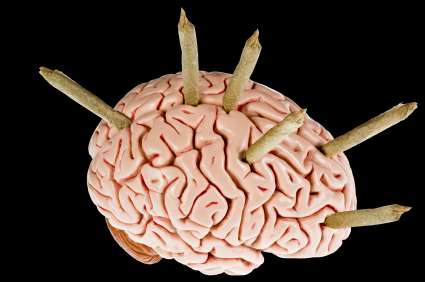7 Ways Marijuana May Affect the Brain
 LifeScience 1 July 2016
LifeScience 1 July 2016
Family First Comment: A very good summary…
“Marijuana has a reputation as a relatively harmless drug, but researchers are learning more and more about the effects it may have on the brain. An increased risk of psychosis, changes in the brain’s reward system and the scrambled neuron signals that may underlie “the munchies” are just some of the many potential effects of marijuana use on the brain…..”
Marijuana has a reputation as a relatively harmless drug, but researchers are learning more and more about the effects it may have on the brain.
An increased risk of psychosis, changes in the brain’s reward system and the scrambled neuron signals that may underlie “the munchies” are just some of the many potential effects of marijuana use on the brain.
“The biggest risk related to the use of marijuana is the increased risk of psychosis,” said Dr. Scott Krakower, assistant unit chief of psychiatry at Zucker Hillside Hospital in Glen Oaks, New York. Another significant risk, for those who use marijuana during their teenage years, is an increased likelihood of an IQ drop.
“It is safe enough to say that people who smoke marijuana,” especially when they are young, are more likely have a reduction in their IQ later in life, Krakower told Live Science. [11 Odd Facts About Marijuana]
Here’s a look at the recent research on marijuana’s possible effects on the brain.
Marijuana and psychosis
Multiple studies have linked marijuana use with a higher risk of psychosis, which is a medical term that applies to symptoms that involve losing touch with the real world, such as hallucinations or paranoia.
Pot and IQ
Teens who smoke pot may be more likely to experience an IQ drop when they are older, research has suggested.
Brain size, connectivity
Using marijuana for many years may be linked to changes in brain size, research has suggested.
The brain’s reward system
The brains of people who have smoked pot for many years may respond differently to certain rewards, compared with the brains of people who don’t use the drug, according to a recent study.
Noisy neurons
THC – marijuana’s main psychoactive compound —may increase the level of “neural noise,“or random neural activity in the brain, research suggests.
Munchies and the brain
Marijuana may affect certain neurons in the brain that are normally responsible for suppressing appetite, and this effect may explain why people often get very hungry after smoking pot, according to a 2015 study in mice.
Marijuana and the teenage brain
Marijuana may affect teenage brains differently than it affects adult brains.
READ MORE: http://www.livescience.com/55258-how-marijuana-affects-the-brain.html







